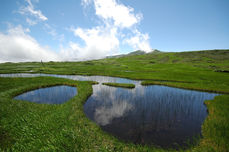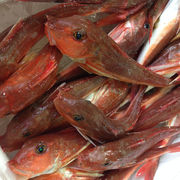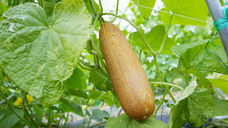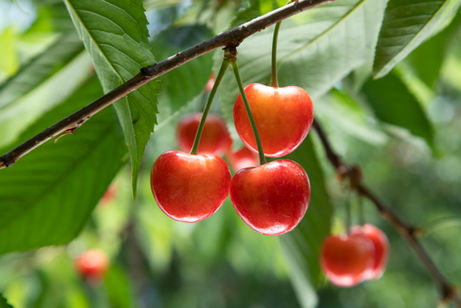Mountains
Yamagata Prefecture is famous in Japan for its mountainous landscape, and Tsuruoka is no exception, with approximately 73% of its land blanketed by forest. The mountains here rise as tall as 2,000 metres from sea level, with distinct ecosystems emerging at different altitudes, supporting the growth of various flora and fauna.
During winter, humid winds from the northwest bring heavy snowfall to the Shōnai Plain, which accumulates in the mountains till summer. This, in combination with mulch deposits from surrounding vegetation, creates an optimal cold and humid environment for the growth of mountain vegetables such as gassandake, bamboo shoots collected from Mt. Gassan.
The mountains are also home to traditional game- and bear-hunting methods practiced by a group of people known as the matagi. These methods provide ingredients for unique dishes that have been passed down till today, especially in the Asahi area. These dishes include pheasant soup (kiji-jiru) and bear soup (kuma-jiru).
Sea
Even though the city’s coastline is one of the shortest in the nation, it is blessed by the warm Tsushima current from the Sea of Japan, making the coast a highly productive ecosystem. Over 200 different species of seasonal fish can be caught from the coast, such as winter cod and cherry salmon, which then become integral parts of Tsuruoka’s local gastronomy.
The abundance of minerals that flow into the sea from Tsuruoka’s rivers help nourish fish along the coast, giving them a rich, savoury flavour. They pair well with local crops, which flourish thanks to melted snow from the mountains.
Plains
Farmers’ and private crop breeders’ efforts towards developing rice breeding and irrigation works have allowed the Shōnai Plain to become one of Japan’s most iconic rice cultivation areas. From rice planting in May to harvesting in October, it has the most ideal climate conditions for rice production, including relatively high temperatures and long daylight periods, particularly in August. In addition, the snow from the Three Sacred Mountains of Dewa and Mt. Chōkai melts and is purified by the beech trees as it flows down into the fields, providing a quality source of water essential for good rice production. Currently, this region produces premium varieties of local rice such as the Tsuyahime and Haenuki cultivars. Local farmers are also switching to more eco-friendly farming practices in an effort to promote sustainability. Japan's top-quality sake is also brewed using rice produced from this region.
Besides rice production, the Shōnai Plain also provides an ideal environment for growing all sorts of crops. Tsuruoka is home to over 60 different types of heirloom crops, such as the dadacha soybean and atsumi turnip, which are the results of selective breeding techniques undertaken by countless generations of farmers.







































